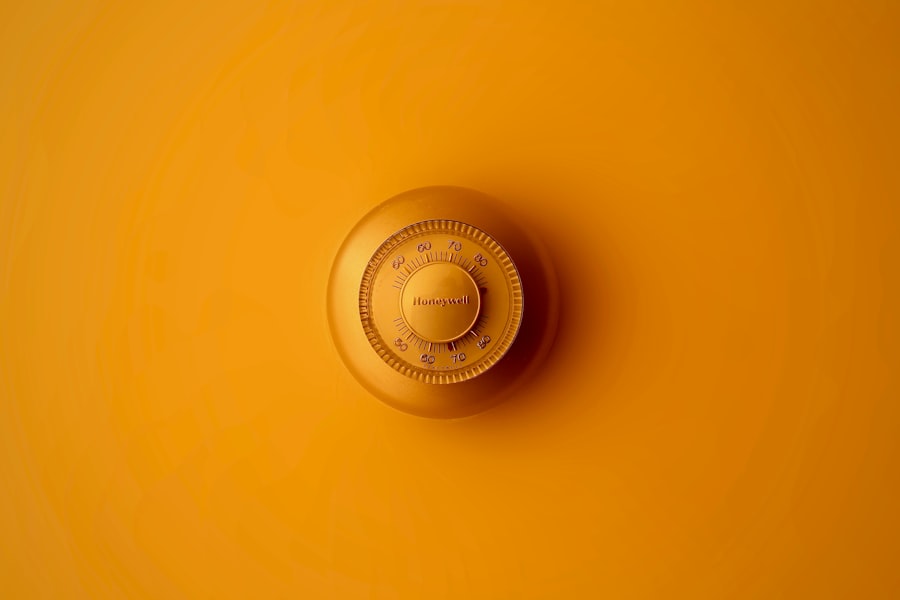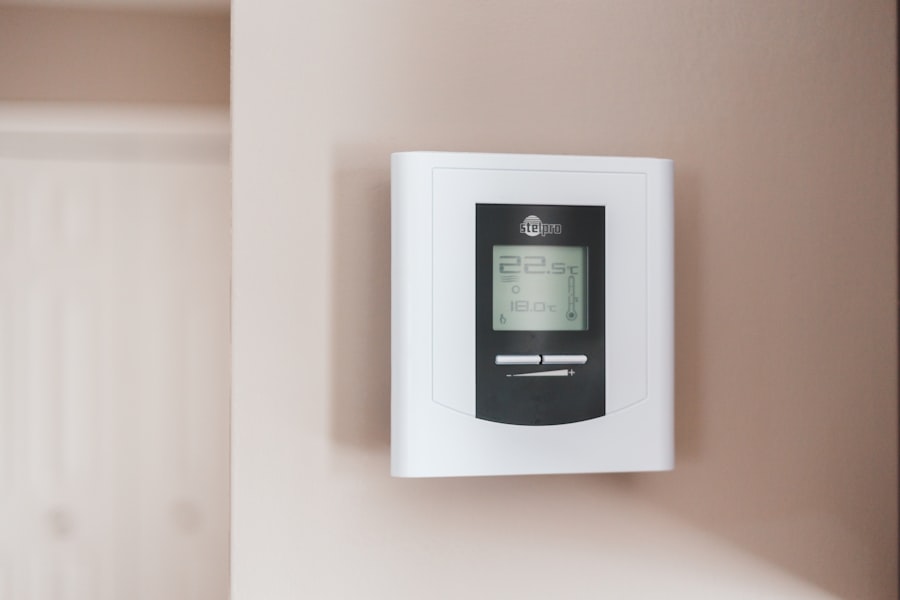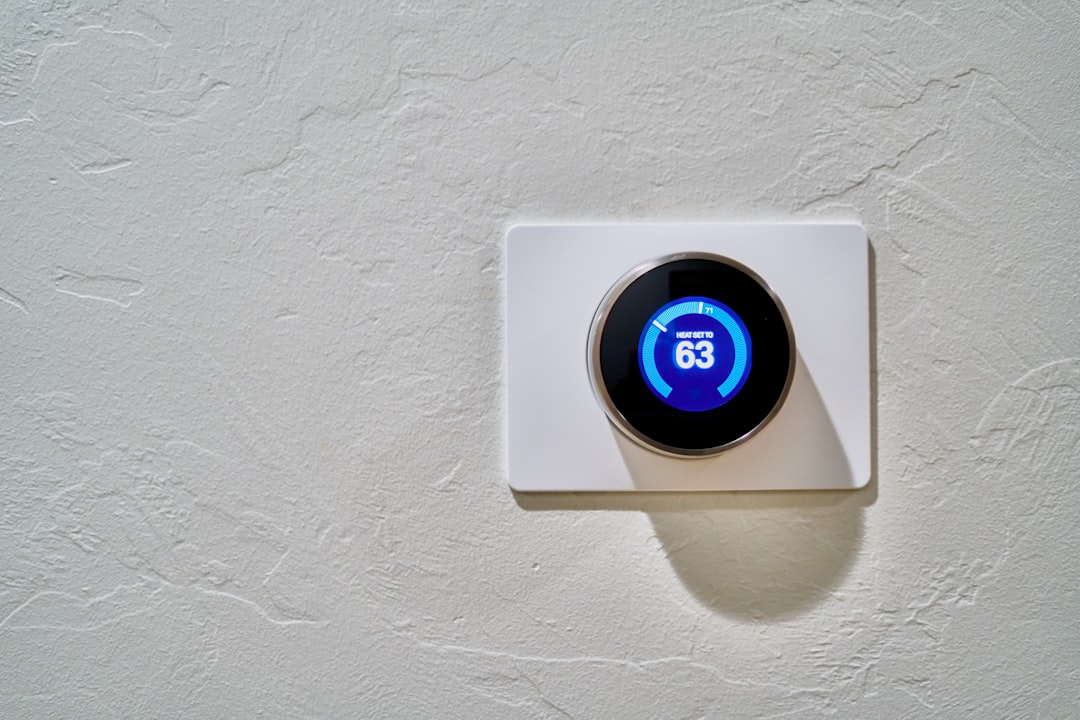Home automation has emerged as a transformative force in modern living, particularly in the realm of energy efficiency. This technological advancement allows homeowners to control various systems and appliances remotely, often through smartphones or other devices. The integration of smart technology into everyday life not only enhances convenience but also plays a crucial role in reducing energy consumption.
As concerns about climate change and rising energy costs continue to grow, the adoption of home automation systems has become increasingly relevant. By optimizing energy use, these systems contribute to a more sustainable lifestyle while also providing financial benefits. The concept of home automation encompasses a wide range of technologies, from smart thermostats and lighting systems to advanced security features and energy monitoring tools.
These innovations work together to create a cohesive ecosystem that can significantly reduce energy waste. For instance, smart thermostats can learn a homeowner’s schedule and adjust heating and cooling accordingly, ensuring that energy is not wasted when the house is empty. This level of control and adaptability is a hallmark of home automation, making it an appealing option for those looking to enhance their energy efficiency.
Key Takeaways
- Home automation can help improve energy efficiency by allowing homeowners to control and monitor their energy usage.
- Cost savings can be achieved through the use of home automation systems, which can help reduce energy consumption and lower utility bills.
- Home automation provides increased control and monitoring of energy usage, allowing homeowners to make informed decisions about their energy consumption.
- Integration with renewable energy sources can further enhance the energy efficiency of a home automation system, allowing for the use of clean and sustainable energy.
- Smart HVAC systems, lighting control, and appliance automation are key components of home automation for energy efficiency, helping to optimize energy usage and reduce environmental impact.
Cost Savings through Home Automation
One of the most compelling reasons for homeowners to invest in home automation is the potential for substantial cost savings. By implementing smart technologies, individuals can significantly lower their utility bills over time. For example, smart thermostats can reduce heating and cooling costs by up to 30% by optimizing temperature settings based on occupancy patterns.
This means that homeowners can enjoy a comfortable living environment without incurring exorbitant energy expenses. Additionally, many utility companies offer incentives for customers who adopt energy-efficient technologies, further enhancing the financial benefits of home automation. Moreover, the long-term savings associated with home automation extend beyond just monthly utility bills.
Many smart devices are designed to have a longer lifespan than traditional appliances, which can lead to reduced replacement costs over time. For instance, LED lighting systems, which are often integrated into home automation setups, consume significantly less energy than incandescent bulbs and last much longer. This not only translates to lower energy costs but also minimizes the frequency of bulb replacements, contributing to overall savings.
As homeowners begin to recognize these financial advantages, the appeal of home automation continues to grow.
Increased Control and Monitoring of Energy Usage

Home automation provides homeowners with unprecedented control over their energy usage. Through intuitive apps and interfaces, individuals can monitor their energy consumption in real-time, allowing them to identify patterns and make informed decisions about their usage habits. For example, smart plugs can track the energy consumption of individual devices, enabling users to pinpoint which appliances are using the most power.
This level of insight empowers homeowners to take proactive measures to reduce their energy footprint. In addition to monitoring, home automation systems allow for remote control of various devices and systems. Homeowners can adjust their thermostat settings or turn off lights from anywhere using their smartphones.
This capability is particularly beneficial for those who may forget to turn off appliances or adjust their heating before leaving home. By providing this level of control, home automation not only enhances convenience but also encourages more mindful energy consumption practices.
Integration with Renewable Energy Sources
The integration of home automation systems with renewable energy sources represents a significant advancement in energy efficiency. As more homeowners invest in solar panels and other renewable technologies, the ability to manage and optimize this energy becomes crucial. Smart home systems can be programmed to prioritize the use of solar energy when it is available, reducing reliance on grid electricity and lowering overall energy costs.
For instance, during peak sunlight hours, a home automation system can automatically adjust the operation of appliances like dishwashers or washing machines to run when solar energy is most abundant. Furthermore, home automation can facilitate battery storage solutions that work in tandem with renewable energy sources. Homeowners can store excess solar energy generated during the day for use during the evening or on cloudy days.
This not only maximizes the efficiency of renewable energy systems but also provides a backup power source during outages. The seamless integration of these technologies creates a more resilient and sustainable energy ecosystem within the home.
Smart Heating, Ventilation, and Air Conditioning (HVAC) Systems
Smart HVAC systems are at the forefront of home automation for energy efficiency. These advanced systems utilize sensors and algorithms to optimize heating and cooling based on real-time conditions within the home. For example, smart thermostats can detect when rooms are occupied and adjust temperatures accordingly, ensuring that energy is not wasted on unoccupied spaces.
This level of precision not only enhances comfort but also leads to significant reductions in energy consumption. Additionally, many smart HVAC systems are equipped with features such as zoning capabilities, which allow homeowners to control temperatures in different areas of the house independently. This means that if one part of the home receives more sunlight than another, the HVAC system can adjust accordingly without overcooling or overheating other areas.
The result is a more efficient use of energy resources, as well as improved comfort levels throughout the home.
Lighting Control and Efficiency

Smart Lighting Systems for Energy Efficiency
Lighting is one of the most significant contributors to residential energy consumption, making it a prime target for efficiency improvements through home automation. Smart lighting systems allow homeowners to control their lights remotely and set schedules for when lights should be turned on or off. For instance, lights can be programmed to turn off automatically when no one is present in a room or dimmed during certain times of day to reduce energy usage.
Energy-Efficient Lighting Solutions
Moreover, many smart lighting solutions utilize LED technology, which consumes significantly less power than traditional incandescent bulbs. This shift towards energy-efficient lighting solutions not only reduces energy consumption but also contributes to a more sustainable living environment.
Integrating Motion Sensors for Optimal Energy Savings
These systems can also be integrated with motion sensors that detect occupancy, ensuring that lights are only activated when needed. This combination of smart technology and efficient lighting solutions results in substantial energy savings while enhancing the overall ambiance of the home.
Enhancing Ambiance and Sustainability
By adopting smart lighting systems and energy-efficient solutions, homeowners can create a more sustainable and comfortable living space. This not only benefits the environment but also contributes to significant cost savings on energy bills, making it a worthwhile investment for any homeowner.
Appliance Automation and Energy Management
Home automation extends beyond lighting and HVAC systems; it encompasses a wide range of household appliances as well. Smart appliances such as refrigerators, washing machines, and ovens can be programmed to operate during off-peak hours when electricity rates are lower. For example, a smart washing machine can be set to run overnight or during times when solar power is abundant, maximizing efficiency and minimizing costs.
Additionally, many smart appliances come equipped with features that allow homeowners to monitor their energy usage directly from their smartphones. This capability enables users to track how much energy each appliance consumes over time and make adjustments as necessary. By understanding which appliances are the most energy-intensive, homeowners can make informed decisions about usage patterns and consider upgrading to more efficient models if needed.
Environmental Benefits of Home Automation for Energy Efficiency
The environmental benefits of home automation for energy efficiency are profound and far-reaching. By reducing overall energy consumption, these systems contribute to lower greenhouse gas emissions associated with electricity generation. As more homeowners adopt smart technologies that optimize their energy use, the cumulative effect can lead to significant reductions in carbon footprints on a larger scale.
Furthermore, home automation promotes sustainable living practices by encouraging individuals to be more mindful of their energy consumption habits. The ability to monitor usage in real-time fosters a greater awareness of how daily activities impact overall energy consumption. This heightened consciousness can lead to behavioral changes that prioritize sustainability, such as turning off lights when leaving a room or adjusting thermostat settings based on occupancy.
In conclusion, home automation represents a powerful tool for enhancing energy efficiency in residential settings. Through cost savings, increased control over energy usage, integration with renewable sources, and advanced management of heating, lighting, and appliances, homeowners can significantly reduce their environmental impact while enjoying greater convenience and comfort in their daily lives. As technology continues to evolve, the potential for even greater advancements in home automation will undoubtedly play a pivotal role in shaping sustainable living practices for future generations.
If you’re interested in how technology can enhance efficiency and convenience in everyday life, you might find the article on how smartwatches are revolutionizing the workplace particularly enlightening. Similar to the benefits of home automation for energy efficiency, smartwatches contribute to personal and professional productivity by allowing users to monitor their health, manage notifications, and even control other connected devices directly from their wrist. This integration of technology streamlines processes and improves the user’s ability to interact with their environment effectively, much like home automation systems enhance energy management and comfort within a home.
FAQs
What is home automation for energy efficiency?
Home automation for energy efficiency refers to the use of smart technology to control and manage various systems and appliances in a home in order to reduce energy consumption. This can include smart thermostats, lighting controls, and energy monitoring systems.
What are the benefits of home automation for energy efficiency?
The benefits of home automation for energy efficiency include reduced energy consumption, lower utility bills, increased convenience, and the ability to monitor and control energy usage remotely. Additionally, it can contribute to a more sustainable and environmentally friendly lifestyle.
How does home automation help reduce energy consumption?
Home automation helps reduce energy consumption by allowing homeowners to schedule and control the operation of heating, cooling, lighting, and other systems based on their actual usage patterns and needs. This can prevent unnecessary energy waste and optimize the efficiency of home systems.
What are some common examples of home automation for energy efficiency?
Common examples of home automation for energy efficiency include smart thermostats that can be programmed to adjust temperature settings based on occupancy and time of day, smart lighting systems that can be controlled remotely and set to turn off when not in use, and energy monitoring devices that provide real-time data on energy usage.
Is home automation for energy efficiency cost-effective?
While there is an initial investment in purchasing and installing home automation devices, the long-term cost savings from reduced energy consumption can make it a cost-effective solution for many homeowners. Additionally, some utility companies offer rebates or incentives for installing energy-efficient home automation systems.

